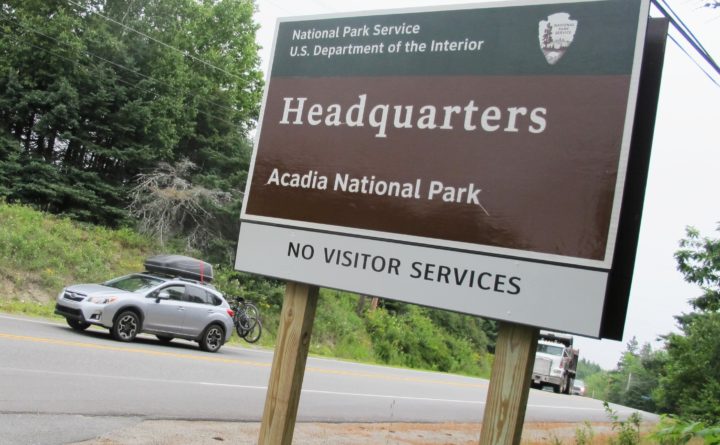
With an impasse over border wall funding threatening to trigger a partial federal government shutdown, it’s a good time to review how that would affect life in Maine if it happens.
President Donald Trump said he won’t sign a Senate spending bill without more funding for border security — ideally, from Trump’s perspective, about $5 billion for a long-desired border wall between the U.S. and Mexico.
If the president and congressional leaders can’t come up with a compromise between now and their Friday deadline, several government agencies will lack the money keep running.
This particular government shutdown isn’t as complete a shutdown as the ones caused by previous bouts of partisan gridlock in January 2018 and October 2013, in part because some federal agencies — including the Department of Health and Human Services — have already been funded beyond Friday.
So what will stay open and what will close if Trump and Congress can’t make peace over the border wall? The good news for Mainers is that many of the federal offices and services people in this state rely on would continue to operate during this partial shutdown.
Will close or stop offering services
Big ones would likely be Acadia National Park and Katahdin Woods and Waters National Monument, as properties under the National Parks Service, which is in the Department of the Interior, would drop to skeleton staffing or none at all.
According to Vox, the Internal Revenue Service would likely also greatly reduce staffing, although that wouldn’t likely bother too many Mainers unless the impasse lasts deeper into tax season and refunds are delayed.
The Environmental Protection Agency and Food and Drug Administration would also go into some kind of hibernation, so companies and communities working with those agencies would likely see delays.
But these services shouldn’t be interrupted
Do you have a last-minute Christmas gift to mail out? Good news. The U.S. Postal Service collects revenues from consumer sales and doesn’t get closed down when many other government programs do.. Mainers can still send and receive mail, and visit their local Post Office during regular hours when the federal government shuts down.
Traveling for the holidays? More good news. The Federal Aviation Administration and Transportation Security Administration, the agencies keeping airports open and flights going, are considered “essential” government personnel and continue operating during larger shutdowns. Nobody can promise good weather this time of year, but if flights at Portland International Jetport or Bangor International Airport are cancelled, it shouldn’t have anything to do with the federal government shutdown. Most U.S. Customs and Border Patrol functions are considered “essential” as well, so if your travel is across a border, it should still be OK.
The Department of Veterans Affairs has already gotten its funding beyond Friday, like DHHS, so places like Togus VA Medical Center in Augusta should remain open throughout, and veteran disability pay and benefits are funded outside the annual budget disputes that often lead to these shutdowns, so those checks should continue coming.
OK as long as the shutdown doesn’t drag on
Some federal branches have enough money from other sources that they can hang on for a little while under a government shutdown, but not for too long. Others stay mostly operational, but narrow their services in some way.
Social Security, Medicare and Medicaid are considered “essential,” so those already in the programs shouldn’t see interruptions, but benefit verifications and the issuance of cards would stop, potentially causing serious delays for thousands of new applicants.
Federal courts could stay open for a little while, thanks to the money they make off of court fees. According to the Congressional Research Service and Vox, the federal courts had enough in the bank to stay open for three weeks when the January 2018 shutdown happened, for example.
Similarly, the U.S. Department of Agriculture could sustain its food stamps and other nutritional safety net programs for a while, but would run out of money if the shutdown drags on. In January 2018, the department said it could continue supporting those programs for at least a month.




